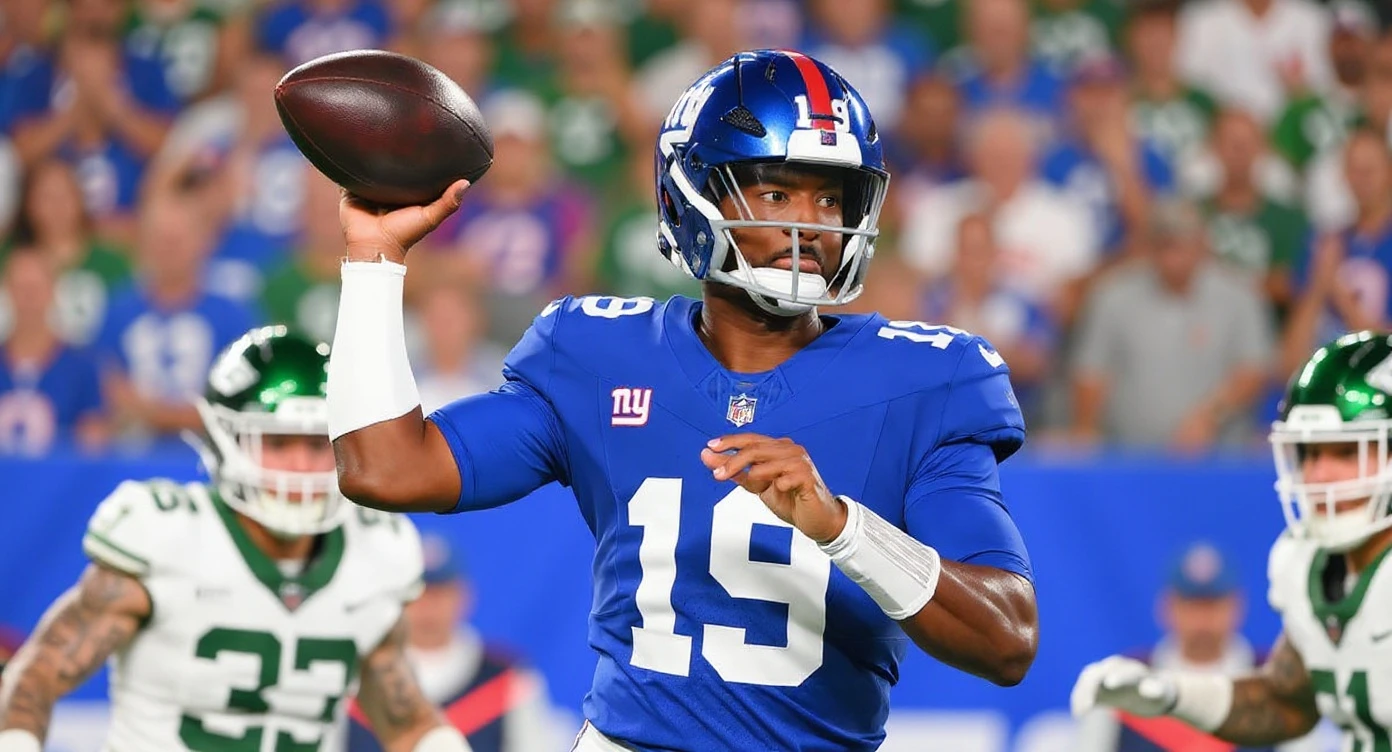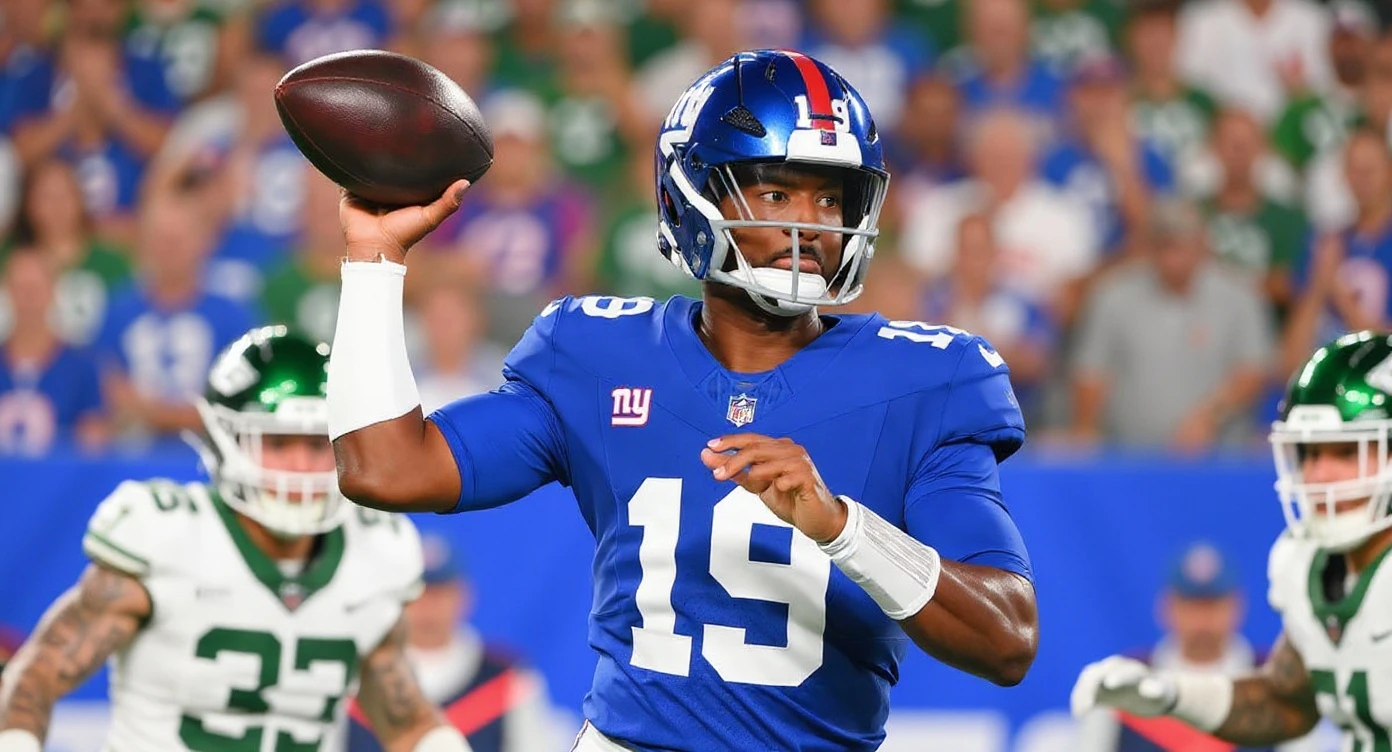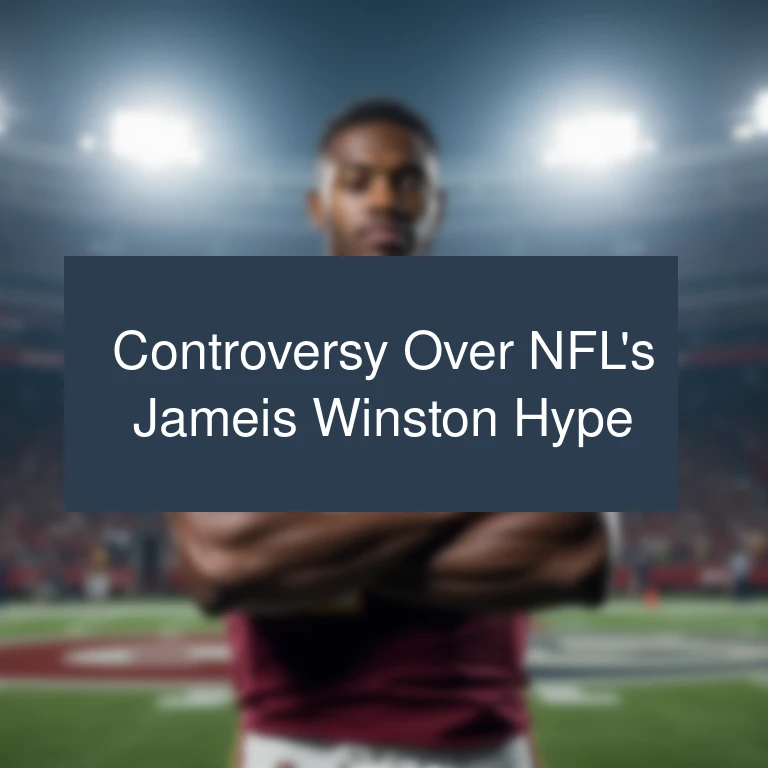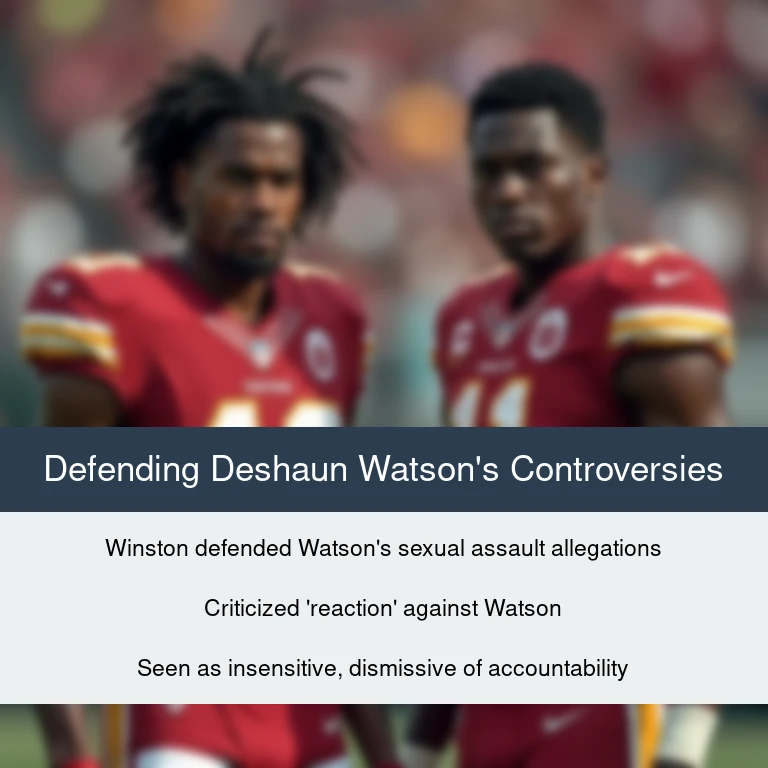The NFL’s recent portrayal of Jameis Winston as a ‘national treasure’ has sparked widespread criticism, given the quarterback’s troubled past and lack of accountability for his actions.
Want to know what people are really saying? Don’t miss the buzz from Reddit at the end!
The NFL’s Controversial ‘National Treasure’
The National Football League recently bestowed an unusual distinction upon quarterback Jameis Winston—labeling him a ‘national treasure.’ On the surface, the recognition acknowledges his on-field performance and marketable personality. Yet this designation conceals a far more troubling reality about how professional sports organizations evaluate their employees.
Winston’s past is neither brief nor minor. At Florida State University, he faced serious sexual assault allegations that were never fully resolved through the criminal justice system. In 2014, he shoplifted crab legs from a grocery store—an incident that became cultural shorthand for his impulsive decision-making. Most significantly, in 2016, an Uber driver accused Winston of groping her without consent. Following an NFL investigation that substantiated her account—confirming Winston had taken another Uber ride alone consistent with her description—the league suspended him for three games beginning in 2018, determining he had “violated the Personal Conduct Policy by touching the driver in an inappropriate and sexual manner without her consent.”
Despite documented controversies and formal league discipline, the ‘national treasure’ label persists. Winston’s statistical trajectory complicates this narrative. During his 2019 breakout season, he accumulated 5,109 passing yards and 33 touchdown passes—elite numbers that established him as a capable starter. Yet that same season also produced 30 interceptions, revealing the volatility that’s defined his career. More recently, in 2025, Winston’s 36-of-59 completion line for 420 passing yards suggests deployment as a backup rather than a franchise centerpiece.
The persistence of this label despite his complicated history and fluctuating production suggests an institutional calculation: charisma and athleticism outweigh character concerns, regardless of performance trajectory. It raises a fundamental question: what does ‘treasure’ actually mean when applied to someone with such a complicated past?

Why Professional Sports Keep Getting It Wrong: A Pattern Across Leagues
The problem extends far beyond the NFL, revealing an industry-wide epidemic. In European soccer, Arsenal’s continued deployment of midfielder Thomas Partey while he faced rape and sexual assault charges demonstrates this isn’t uniquely American or peculiar to football. The Premier League club maintained Partey’s prominent role despite the severity of allegations—a decision that mirrors how American sports organizations handle similar situations.
This parallel is instructive: whether in the NFL or Premier League, organizations facing pressure to maintain competitive performance have consistently chosen to minimize serious allegations. They employ similar strategies: questioning accusers’ credibility, emphasizing the accused player’s on-field value, and suggesting legal processes should determine judgment before institutional consequences apply. Yet this reasoning obscures a crucial distinction: legal proceedings determine criminal guilt, while institutional responsibility operates on a different standard.
Both leagues have demonstrated that when star talent’s involved, serious allegations become negotiable. The Thomas Partey case illuminates what the Jameis Winston situation exemplifies: professional sports have developed a framework where institutional values bend when economic or competitive interests align with retaining controversial players. This reflects a fundamental structural misalignment where revenue generation consistently outweighs moral responsibility in organizational decision-making, creating a cycle where accountability remains perpetually subordinate to performance metrics.
Deshaun Watson’s Redemption Arc: The Illusion of NFL Accountability
Perhaps no recent case better illustrates the NFL’s hollow approach to accountability than Deshaun Watson’s trajectory. Between 2020 and 2021, over two dozen massage therapists accused Watson of sexual assault and harassment. The NFL suspended him for eleven games—initially, then extended it—and imposed a $5 million fine. On paper, these penalties appear substantial. In practice, they functioned as temporary inconveniences.
Watson signed a fully guaranteed $230 million contract with the Cleveland Browns despite these suspensions, ensuring his financial security regardless of misconduct consequences. More troubling than his rapid return to prominence is his current role: he’s now mentoring younger players, including emerging talent like Shedeur Sanders. This mentorship represents something symbolically significant. Watson has transitioned from suspended player to respected veteran authority figure—a trajectory that mirrors how professional sports institutions ultimately treat controversial players.
The suspension created the appearance of accountability while the subsequent mentor role manufactured a redemption narrative. Yet neither addressed the fundamental allegation: that serious misconduct occurred. The pattern becomes clear chronologically. Watson faced accusations. The league suspended him. He signed a massive contract. He regained his position. He now influences younger players. At no point did genuine accountability—meaningful behavioral change or institutional learning—appear to occur. Instead, the league cycled through performing accountability while ultimately preserving Watson’s status and influence.
The Uncomfortable Truth: Character Doesn’t Factor Into Modern Professional Sports
Examining Jameis Winston’s ‘national treasure’ designation despite documented allegations and formal suspension, Thomas Partey’s continued prominence despite rape charges, and Deshaun Watson’s rise from suspension to mentor reveals an uncomfortable reality that professional sports institutions prefer to obscure: character doesn’t meaningfully influence employment decisions when star talent is involved.
The NFL’s labeling of Winston as a national treasure—despite sexual assault allegations at Florida State, a shoplifting incident, and his three-game suspension for groping an Uber driver—demonstrates institutional choice. The league consciously decided these factors were outweighed by his marketability and on-field performance. This isn’t judgment-free evaluation; it’s a specific calculation where character concerns are deemed negotiable.
What makes this pattern particularly concerning is its consistency across different sports and organizational contexts. Arsenal’s handling of Thomas Partey and the NFL’s approach to Watson suggest this isn’t aberration but standard institutional practice. Professional sports organizations have essentially decided that serious misconduct allegations represent manageable PR challenges rather than disqualifying factors.
Until the underlying incentive structure changes—until organizations face genuine economic consequences for retaining players credibly accused of serious crimes—this cycle will persist. The ‘national treasure’ designation of Jameis Winston should therefore be understood not as an isolated compliment but as a symptomatic statement revealing how professional sports institutions truly operate: they evaluate players through a single metric, and that metric is performance, not principle.
Institutional Pressure and Systemic Failures: Beyond Misconduct Allegations
The NFL’s structural problems extend beyond its handling of players with misconduct allegations. In a revealing incident involving Giants rookie quarterback Jaxson Dart, head coach Brian Daboll was caught peeking into the injury tent during concussion protocol evaluation, admitting to impatience and wanting Dart cleared to return to play. The NFL subsequently initiated a formal review of how the concussion protocol was followed, with the league’s chief medical officer reiterating strict rules about who can be present during medical evaluations.
This incident—Dart’s third concussion evaluation during games that season—exemplifies how organizational pressure systematically compromises safeguards designed to protect player health. The interference reveals a culture where competitive advantage supersedes health protection, mirroring the institutional misalignment evident in misconduct cases.
Additionally, the lack of accountability in draft evaluation processes compounds this dysfunction. Prospects like Shedeur Sanders have advanced through NFL evaluation processes despite failing to demonstrate personal accountability—not accepting blame for performance mistakes during combine interviews or failing to identify intentional errors in mock offensive installations. Teams continue evaluating such players for high draft positions regardless of these character red flags, suggesting the league systematically undervalues accountability throughout its organizational structure. These interconnected failures reveal an institution fundamentally misaligned with its stated values.







What People Are Saying About the NFL’s ‘National Treasure’ Label for Jameis Winston
The NFL’s decision to label Jameis Winston as a ‘national treasure’ has sparked widespread criticism and debate. Many commentators have highlighted Winston’s troubled past, including allegations of sexual assault and an incident of inappropriate behavior towards an Uber driver, arguing that such a positive portrayal fails to hold him accountable for his actions. Critics contend that the league should prioritize character and accountability over on-field performance and charisma when promoting its players.
Some commentators have also pointed out the hypocrisy of the NFL’s promotion of Winston, noting that the league has a history of minimizing or ignoring misconduct allegations against high-profile players. They argue that the decision to label Winston a ‘national treasure’ without acknowledging his past actions demonstrates the league’s prioritization of talent and charisma over accountability and character.